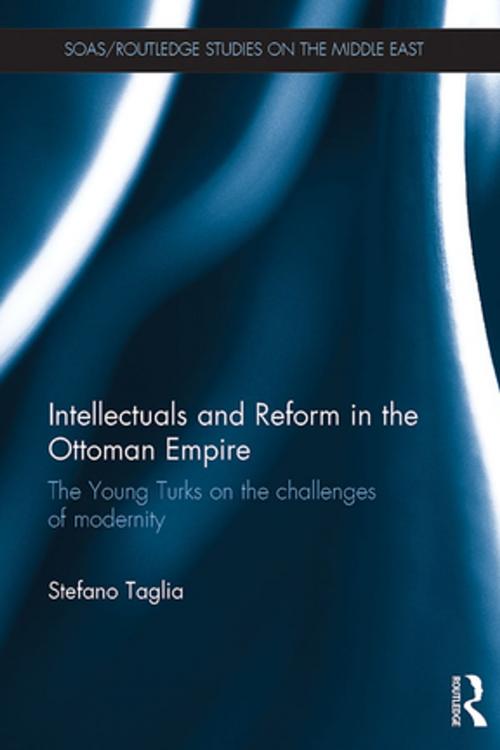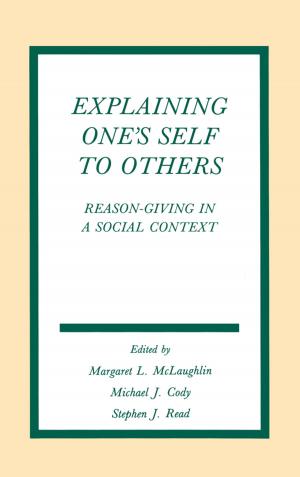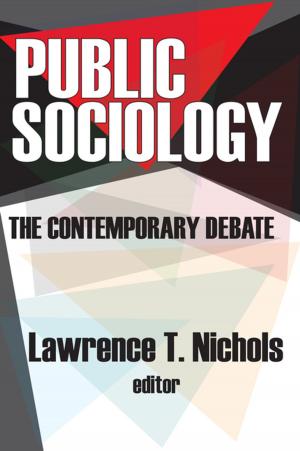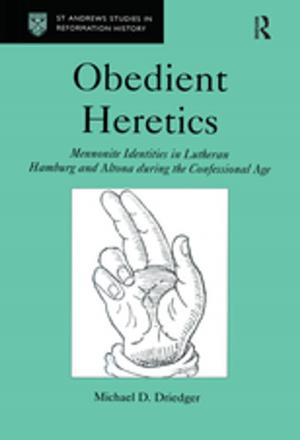Intellectuals and Reform in the Ottoman Empire
The Young Turks on the Challenges of Modernity
Nonfiction, History, Middle East, Social & Cultural Studies, Social Science| Author: | Stefano Taglia | ISBN: | 9781317578628 |
| Publisher: | Taylor and Francis | Publication: | April 24, 2015 |
| Imprint: | Routledge | Language: | English |
| Author: | Stefano Taglia |
| ISBN: | 9781317578628 |
| Publisher: | Taylor and Francis |
| Publication: | April 24, 2015 |
| Imprint: | Routledge |
| Language: | English |
This book uncovers Young Turk political and social ideas at the end of the nineteenth century, during the intellectual phase of the movement.
Analysing the life in exile of two of the most charismatic leaders of the Young Turk movement, Ahmed Rıza and Mehmet Sabahattin, the book unravels their plans for the future of the Ottoman Empire, covering issues of power, religion, citizenship, minority rights, the role of the West, and the accountability of the Sultan. The book follows Rıza and Sabahattin through their association with philosophical circles, and highlights how their emphasis on intellectualism and elitism had a twofold effect. On the one hand, seeing themselves as enlightened and entrusted with a mission, they engaged in enduring debates, leaving an important legacy for both Ottoman and Republican rule. On the other hand, the rigidity resulting from elitism and intellectualism prevented the conception of concrete plans for change, causing a schism at the 1902 Congress of Ottoman Liberals and marking the end of the intellectual phase.
Using bilingual period journals, contemporary accounts, police archives and political and philosophical treaties, this book is of interest to students, scholars and researchers of Middle East and Ottoman History, and Political Science more broadly.
This book uncovers Young Turk political and social ideas at the end of the nineteenth century, during the intellectual phase of the movement.
Analysing the life in exile of two of the most charismatic leaders of the Young Turk movement, Ahmed Rıza and Mehmet Sabahattin, the book unravels their plans for the future of the Ottoman Empire, covering issues of power, religion, citizenship, minority rights, the role of the West, and the accountability of the Sultan. The book follows Rıza and Sabahattin through their association with philosophical circles, and highlights how their emphasis on intellectualism and elitism had a twofold effect. On the one hand, seeing themselves as enlightened and entrusted with a mission, they engaged in enduring debates, leaving an important legacy for both Ottoman and Republican rule. On the other hand, the rigidity resulting from elitism and intellectualism prevented the conception of concrete plans for change, causing a schism at the 1902 Congress of Ottoman Liberals and marking the end of the intellectual phase.
Using bilingual period journals, contemporary accounts, police archives and political and philosophical treaties, this book is of interest to students, scholars and researchers of Middle East and Ottoman History, and Political Science more broadly.















